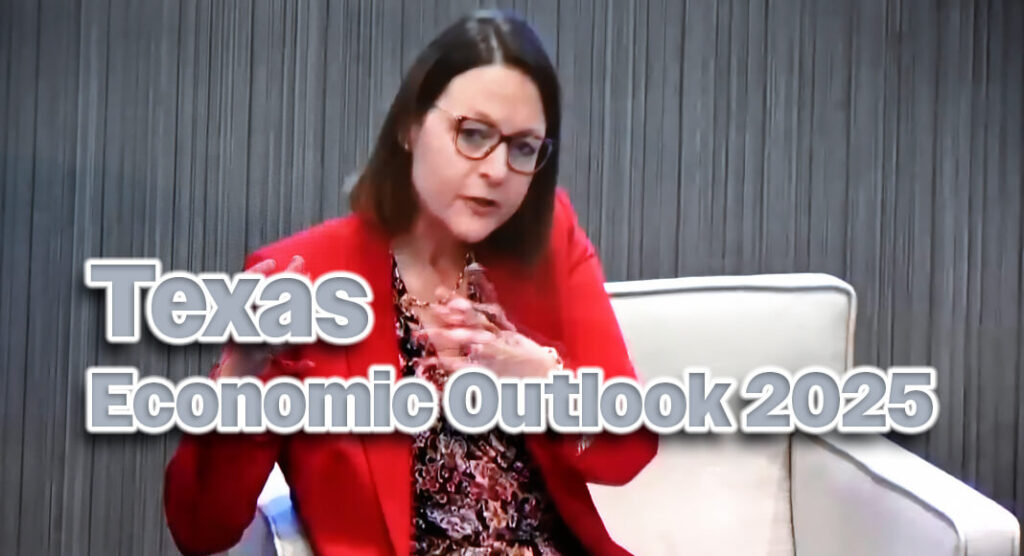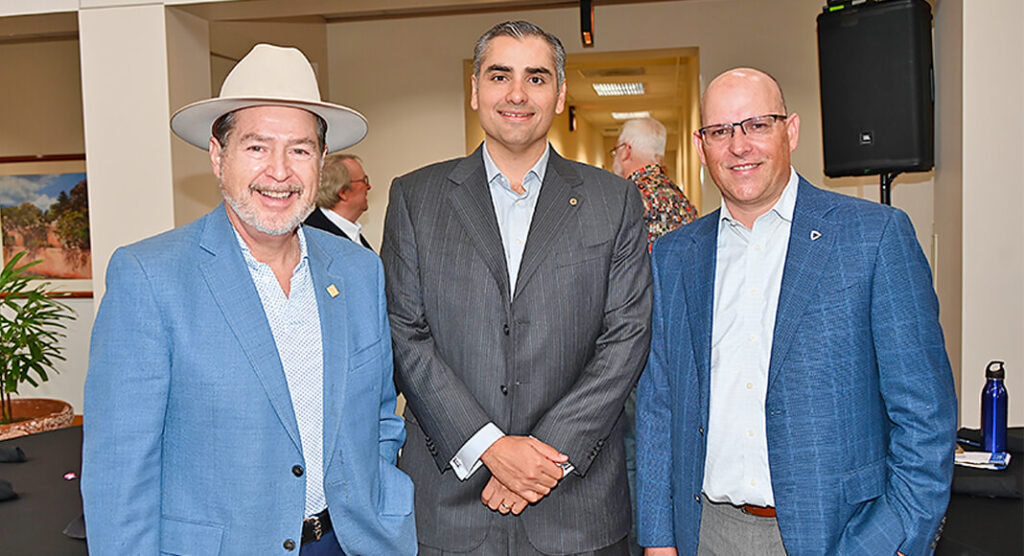
Texas Border Business
By Roberto Hugo González
Atlas, Hall & Rodriguez, LLP (AHR) hosted a lunch presentation in partnership with the Federal Reserve Bank of Dallas, making it the second year that the AHR hosted such luncheon. The highly anticipated event featured the “LIVE Virtual: 2025 Texas Economic Outlook.” Business leaders, policymakers, and community members were eager to hear insights from Pia M. Orrenius, Vice President and Senior Economist at the Dallas Fed.

The presentation, which was attended by a full house, both in person at the AHR McAllen office and virtually, provided an in-depth examination of Texas’s economic performance in 2024, the factors shaping 2025, and the opportunities and risks ahead. Watch parties across the Rio Grande Valley, El Paso, Houston, San Antonio, and Austin joined in to gain a deeper understanding of the state’s economic trajectory.
See gallery of images below:
Texas maintained a strong economic position in 2024, yet job growth underperformed expectations, coming in at 1.7 percent, below the 2.0 percent forecast and historical state average. “The Texas economy is healthy, but really, if we look back at last year, it slowed a little bit more than we expected,” Orrenius said. Several factors contributed to this slowdown, including higher interest rates, declining oil and gas prices, and election-year uncertainty, which led businesses to delay major decisions. Despite these challenges, Texas continued outperforming the national economy, maintaining its reputation as a business-friendly hub with strong labor market fundamentals and a dynamic workforce.
Texas’s energy, financial services, and construction sectors led job growth in 2024, while Austin and Dallas underperformed due to layoffs in tech and business services. Smaller metro areas, including Brownsville and Beaumont, saw impressive economic expansion, benefiting from labor force growth and increased investments. The state’s labor force saw record growth, primarily driven by international migration, which offset a decline in domestic migration. “We had record labor force growth, and I think that benefited many of these small metros,” Orrenius noted. Despite external pressures, Texas’s 1.8 percent population increase helped sustain its economic momentum.
The 2025 economic forecast projects 1.6 percent job growth, signaling continued but below-trend expansion. While Texas businesses remain optimistic, economic risks remain significant. “We’re kind of seeing 2025 as a balancing act between post-election optimism and some anticipated negative growth effects from higher tariffs, lower immigration, and government spending cuts,” she explained.
Several key factors will influence economic growth in 2025. Businesses expect deregulation and tax cuts to encourage investment and expansion, while Texas’s strong business climate continues to attract companies and talent. The state’s budget surplus and rainy-day fund provide financial flexibility for economic stability. However, trade tariffs could lead to retaliatory measures, impacting Texas exports, particularly in energy and manufacturing. Declining immigration due to stricter policies may limit labor force expansion, and federal spending cuts could slow down certain industries and affect public sector employment.
Texas’s housing market remained stable in 2024, with home prices adjusting to inflation. Austin and San Antonio saw rent declines, while Houston’s housing market remained steady. Concerns over commercial real estate, particularly in the office sector, eased.
The energy sector remained strong, with Texas’s crude oil production reaching 5.8 million barrels per day despite a declining rig count. New drilling technology has led to increased efficiency in production. “It’s actually really fun to talk to the energy executives and just learn about the productivity in the oil field,” Orrenius said, highlighting how innovations in drilling have allowed production to remain high with fewer rigs. New Mexico’s oil boom in the Permian Basin is contributing to regional economic growth.
Texas remains the nation’s top exporting state, although export growth stagnated in 2024 due to a strong U.S. dollar and weaker demand from China. Business leaders are concerned that new import tariffs could lead to retaliatory actions, affecting Texas’s trade-based economy. “And you say, ‘Well, Pia, tariffs are not gonna affect exports.’ Tariffs are on imports. But then I tell you, yes, but if we do tariffs on imports, we may experience retaliatory tariffs, which would affect our exports,” Orrenius cautioned.
Inflation in Texas fell below the national average, yet businesses expect higher price increases in 2025. Financial conditions improved, with banks reporting increased loan volumes and fewer concerns over commercial real estate. The outlook for Federal Reserve rate cuts remains uncertain as inflation continues to exceed the Fed’s target levels.
The 2025 Texas Economic Outlook presentation reaffirmed the state’s resilience while highlighting key challenges in the year ahead. Texas remains a leader in job creation, energy production, and business-friendly policies, but uncertainties in trade, federal policies, and global demand pose challenges. “Business leaders are optimistic for 2025, even as economists revise their forecasts,” Orrenius observed.
As businesses and policymakers navigate these economic dynamics, insights from the Federal Reserve Bank of Dallas will be crucial in shaping strategic decisions for the coming year.
Atlas, Hall & Rodriguez, LLP, continues to foster economic dialogue and empower business leaders, investors, and community members across Texas. The firm champions economic education and regional engagement through events like this.





















